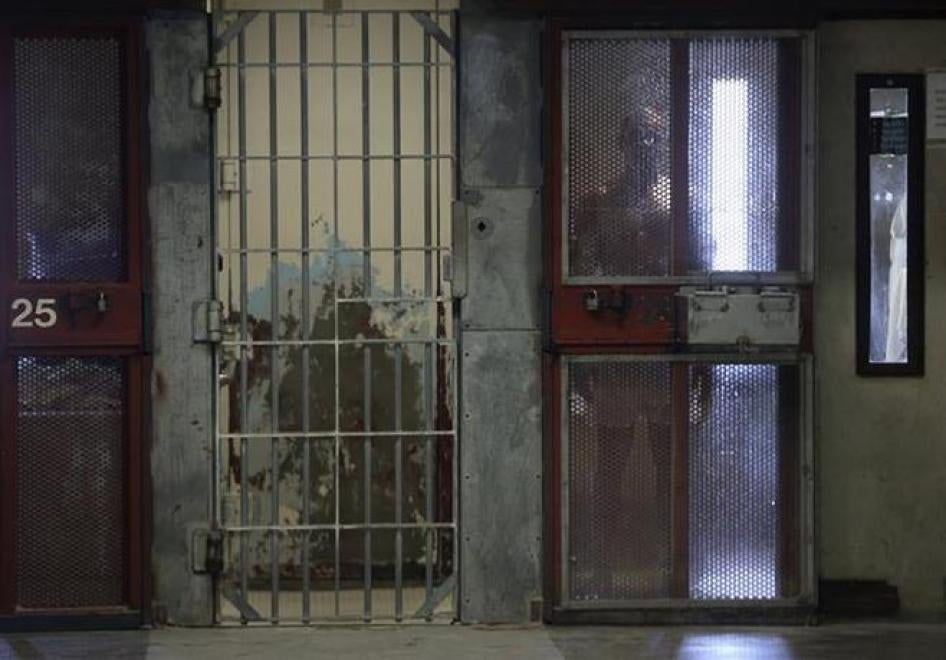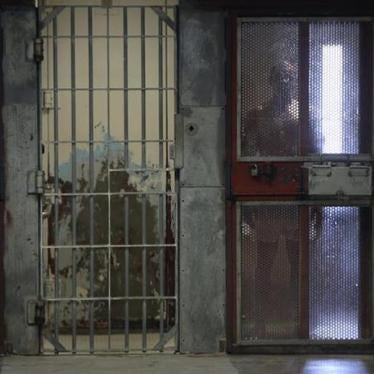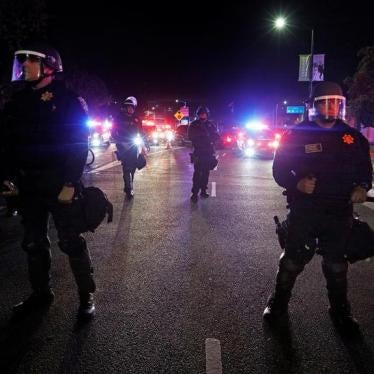I have many harsh memories about my father’s incarceration. One of the more jarring experiences was our attempt to visit him at the Metropolitan Detention Center (MDC) in Brooklyn – the same Federal Bureau of Prisons site where inmates endured freezing temperatures earlier this year. He tells me now it was cold back then, too.
I can vividly remember being corralled by corrections staff through metal detectors, only to be told we could not visit him that day because children under 18 could not visit the Special Housing Unit (SHU), where people are kept in solitary confinement. I was 13 then, I could not quite grasp what that meant.
I understand it better now. I’ve discussed it with my father since his release. And I am a staff member in the US Program at Human Rights Watch, which has done extensive work on prison reform issues.
All of that has helped me to understand the horrors he and thousands of others have faced in New York State prisons. And why the New York State legislature should pass the HALT Solitary Confinement Act, a bill that will limit the ways solitary confinement can be used in state facilities today.
My father is a former New York Police Department detective who became involved in a corruption scandal that led to his arrest and incarceration for grand larceny and cocaine distribution. He committed crimes to support his gambling addiction. His case was and is not something that arouses much public sympathy. But the right not to be tortured or to be subjected to cruel, inhumane, or degrading treatment or punishment is a fundamental human right that we all possess regardless of what we have been accused or convicted of. My father did not lose these rights merely because he was sentenced to prison.
He was told that, as a former police detective he was put in solitary confinement because his presence might have stirred violence among other people incarcerated there. He told me that in over the month that he was there, he suspects he paced back and forth in the small cell more than 150,000 times.
Restricted to a 7-by-9-foot steel cage for 23 hours each day, my father told me, he felt unending mental anguish. For one hour a day, he was allowed outside in another steel cage, with a winter coat, but it was so cold during the parts of January and February that he was there that he only went out twice.
Despite his right to make two phone calls a week, my father recalls that he was allowed only one during his entire time there. This call was to me to wish me a happy birthday and he was only able to make it after he begged corrections staff that he be permitted to do so. I remember receiving this call, and while feeling grateful for the few minutes I had the chance to speak with him, I could sense the despair in his voice knowing that shortly after we hung up he’d be returned to the box. After his time at MDC, he was moved to a federal prison in Pennsylvania to serve the rest of his sentence – some six hours away from our apartment in the Bronx.
My father said the experience of solitary was so dehumanizing and humiliating that he felt as though he was a caged animal. Rather than rehabilitate him, he felt that solitary was an attempt to break him. He remembers a captain at the facility who barked at him: “I am in charge here and I can keep you in this box as long as I fucking want.”
The United Nations special rapporteur on torture has called on countries to sharply limit the use of solitary confinement, to impose an absolute prohibition on indefinite solitary confinement, and to any use of solitary confinement as a form of punishment.
To this day, it pains me to think about my father’s suffering. Since his release, he has been diagnosed with post traumatic stress disorder linked to his time served in the United States Navy in the late 1970s. Human Rights Watch research indicates that solitary confinement can be especially harrowing for those with mental health disabilities, which my father now knows he had when he was held at MDC’s SHU.
The New York State Legislature has the opportunity to prevent further abuses of solitary confinement. By passing the Humane Alternatives to Long-Term Solitary Confinement Act (A2500/S1623), New York’s leaders can create prison reform that better aligns with international human rights standards.
The HALT Solitary Confinement Act would limit solitary confinement to 15 days, create more humane alternatives, restrict the reasons prisoners can be put in solitary confinement, ban solitary confinement for certain especially vulnerable groups, and enhance protections through mandatory reporting and outside oversight.
Human Rights Watch recently sent a memo of support for the HALT Solitary Confinement Act urging New York legislators to pass the bill immediately, in its current form. The bill passed the New York State Assembly last year but has not yet been called to the floor for a vote by either the Senate or the Assembly leadership this year. Legislators have until the end of this legislative session in June to act but there is no reason why they cannot take this step today.
Those being held in prolonged solitary confinement in New York should no longer have to wait for relief. Incarcerated people have human rights just like the rest of us. New York State’s Legislature should take measures to protect them.










